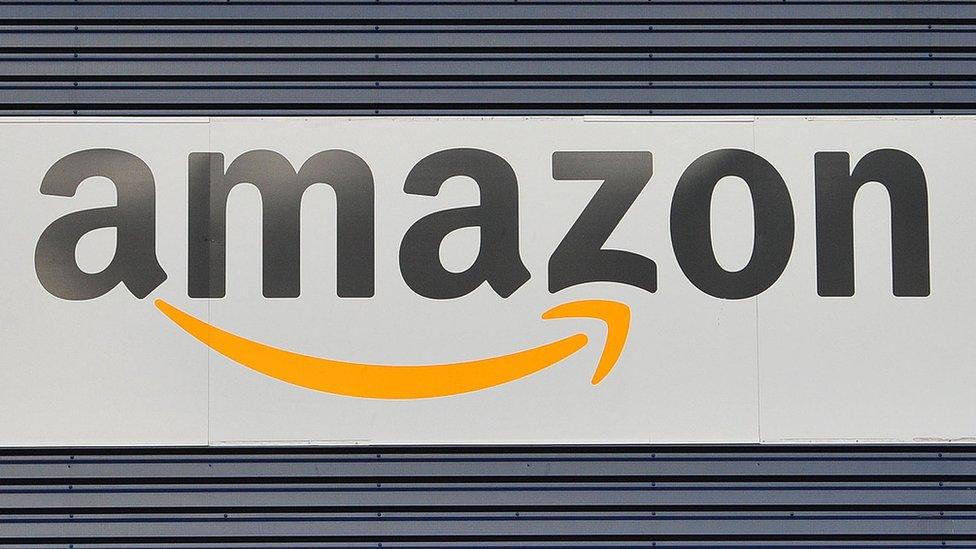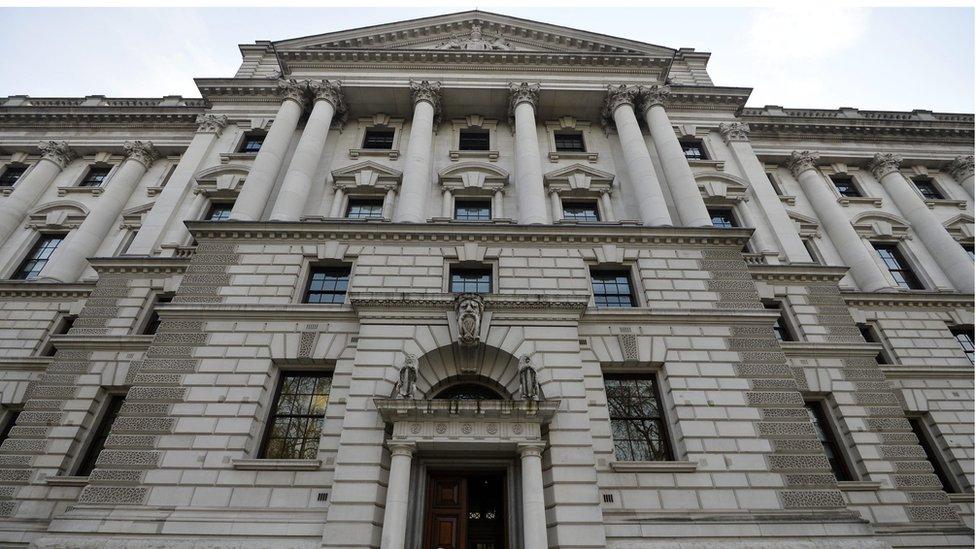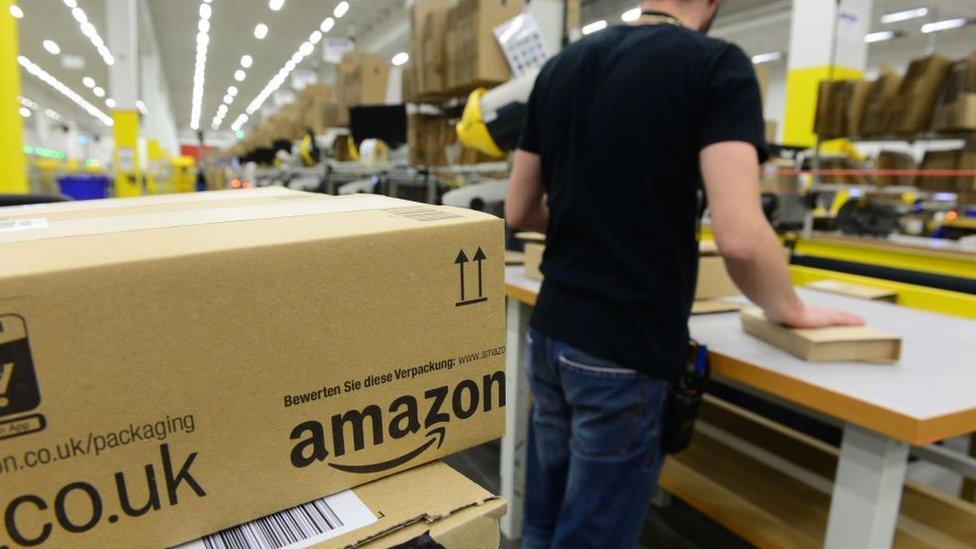Amazon’s other pay benefit: A higher UK tax rate?
- Published

Amazon has been making headlines - and, for once, for the right reasons.
The company said it will raise its minimum wage in the US to $15 an hour. In the UK it will pay workers at least £9.50 an hour, or £10.50 an hour in London.
Some of Amazon's most vocal critics, including US Senator Bernie Sanders, have welcomed the move.
But there may be a link between its higher wages and another area of flak for Amazon: its UK tax bill.
Increasing its hourly pay rates could actually mean that Amazon's UK tax rate goes up.
Share awards
Here's why. One reason Amazon's UK tax bill has been so low in recent years is that it gives a lot of its workers shares as part of their compensation. Such share-based awards enjoy certain tax benefits.
This isn't dodgy - it's an entirely legal way for companies to reduce their corporate tax payments. And share-based awards are quite common. Amazon is perhaps only unusual in that it grants shares to its lower-paid warehouse workers as well as senior managers.
But as part of the pay announcement, Amazon said it would be phasing out its programme for granting restricted stock units to its operations workforce.
(Restricted stock units are basically the right to receive shares in Amazon over the time that an employee works there. There is process called "vesting" which is when employees get the shares, usually after between two to four years).
Now take a look at Amazon's accounts for its largest UK subsidiary, Amazon UK Services Ltd.
Last year, it reported a corporate tax charge of £1.7m on profits of £72.4m - a tax rate of about 2.3% compared to the UK corporate tax rate of 19%.
(It is worth nothing that despite much talk about taxing revenues, UK corporation tax is levied on profits - after wages and other expenses have been deducted from sales).
Tax deduction
A big reason for Amazon's low tax rate was a deduction of £17.5m from its tax bill, due to those share-based pay schemes. There were other adjustments as well but suffice it to say that without that big deduction, Amazon's tax rate would have looked far more normal.
The size of Amazon's deduction is linked to the company's surging share price: its US-listed stock has doubled in the past year. The tax benefit is related to the value of the share awards given to staff when they vest.
As Amazon phases out its programme of giving workers restricted stock units, that deduction should fall. And the company's tax rate should rise. (This could take a couple of years - the company says the phasing out will start for stock which would vest in 2020).
Heather Self, tax partner at Blick Rothenberg, told me: "I would expect Amazon's UK tax rate to rise as a result of this change, and quite possibly its overall tax bill.
"It has reported a growing deduction to its corporation tax bill in recent years thanks to the strong share price of Amazon US. Phasing out its share-based awards scheme for workers should mean a less complicated tax picture with a tax bill closer to the UK statutory rate."
The bigger picture
I'm not suggesting that this is part of Amazon's motivation for its pay move - merely an interesting side effect. Amazon also says workers will be better off overall after the combined effect of the changes.
Aside from its percentage tax rate, does this all mean Amazon will end up paying more tax to the exchequer overall? That's not straightforward.
The company will have a higher wage bill as its pay increases go through, which could depress its taxable profit. Set against that it should also save on some compensation expenses related to its share-based awards.

Is this good news for the Treasury?
And Amazon's UK corporate tax rate is, of course, a very narrow window on what is a big, global issue.
There is the much broader question of how we should tax an increasingly digitalised economy - something Chancellor Philip Hammond talked about this week, hinting the UK could push ahead with a digital services tax if international efforts don't progress.
But still, Amazon argues that it is a high investment, low profit business (and that is part of the reason it doesn't tend to pay much tax). And that's true: it prefers to plough money back into growth and new ventures.
That argument, however, might be easier to swallow with a percentage tax rate that doesn't look so abnormally low.
Amazon's corporate tax rate is just one yardstick it is judged by. Its pay changes could, over time, make that judgement better.
- Published4 October 2018

- Published4 October 2018
